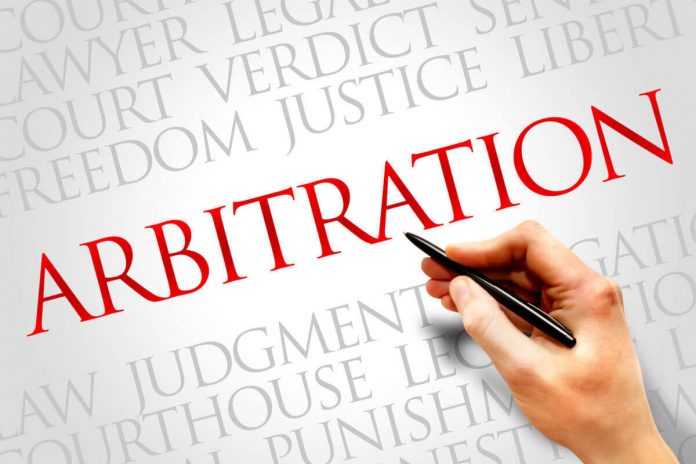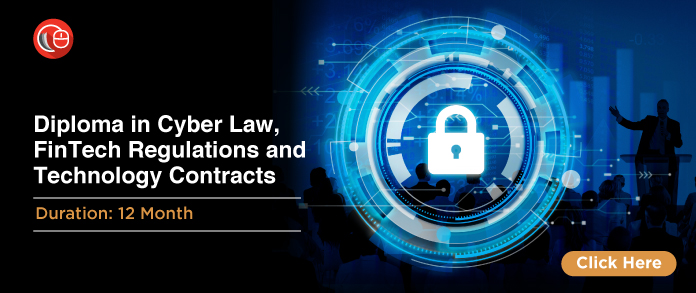This article has been written by Jahnvi Shah pursuing Diploma in Advanced Contract Drafting, Negotiation and Dispute Resolution and has been edited by Oishika Banerji (Team Lawsikho).
This article has been published by Sneha Mahawar.
Table of Contents
Introduction
International investment arbitration (IIA), a complex and specialised field of dispute resolution, deals with disputes arising from foreign investment. It is a type of arbitration that resolves disputes between a foreign investor and a host state generally conducted according to the rules of an international investment agreement or a bilateral investment treaty (BIT). It benefits the foreign investor by avoiding the domestic legal system and seeking redress for harm caused by actions of the host state that may not be adequately addressed by the host state’s domestic legal system.
The primary intention of IIA is to provide a neutral mechanism for resolving disputes and protecting foreign investment. It ensures a more predictable and stable environment for foreign investment, attracts foreign investment to a host state, and mitigates the risk of disputes arising between an investor and a host state. In this article, I will discuss case laws surrounding International Investment Arbitration in the Indian jurisdiction and the UNCITRAL rules on transparency that govern such types of arbitration. The article aims to provide a comprehensive overview of the key concepts and legal frameworks related to International Investment Arbitration, offering insights into the Indian context and the principles of transparency that govern such disputes.
UNCITRAL Rules on Transparency
Applicability
The UNCITRAL Rules on Transparency (“Transparency Rules”) have been set in place to govern the investor-State arbitration initiated as per the UNCITRAL Arbitration Rules. It is typically applicable on treaties concluded on or after the day these rules came into effect, i.e. 1 April 2014. In case of a discrepancy, the law of the arbitration seat and the provisions of the treaty shall prevail over the UNCITRAL.
The Rules on Transparency provide for transparency in arbitration proceedings between foreign investors and the host State. It has been made important due to the involvement of larger public interest. Hence, the documents and the proceedings are made accessible to the public. However, such transparency shall not be allowed to derogate the security interests of the State.
Publication of information and documents
Article 2 of the Transparency Rules says that when people involved in an arbitration tell the place where records are kept (the repository), they must provide certain information in the message. This information includes the names of the people who are arguing, the type of business involved, and the agreement they are using to make their claim.
Publication of documents
Article 3 of the Transparency Rules deals with the publication of documents. Exhibits of expert reports and witness statements are to be made available to a person who makes a request to the arbitral tribunal and the tribunal’s consultation with the disputing parties. The administration costs involved in making such exhibits available to the public shall be borne by the person himself.
Submission by a third person
An application may be made by a third person to the tribunal to make a submission in the arbitration proceeding between the investor and the state. Such application shall have the following contents:
- Description of the third person including details such as membership and legal status;
- Disclosure of connection belonging to the third party, related to the disputed party, whether directly or indirectly.
- Information provided to the third party in relation to any government, person or organisation:
- any financial or other assistance in preparing the submission; or
- Providing substantial assistance within two years that precedes the year in which application by a third person is made under this Article.
- The nature of interest in relation to arbitration, that the third person has.
- Identifying specific issues that the third person has desired to address in his or her written submission.
While allowing the third party to make its submissions, the tribunal shall take into consideration, the following factors among other factors it determines to be relevant:
- Whether there is significant interest on the part of the third person in regard to the arbitral proceedings; and
- Assisting the arbitral tribunal by means of submission so as to determine the factual or legal issue during the proceedings.
Submission by a non-disputing party to the treaty
In Article 5, the provision states that the tribunal is allowed to invite submissions on issues of interpretation of the treaty from a non-disputing party and may allow submissions from it within the scope of the dispute. In making such an invitation, the tribunal shall consider the need to avoid submissions that would support the claim of the investor in a manner tantamount to diplomatic protection.
Hearings
Article 6 states that the hearings shall be made public except for those parts which require protection due to the presence of confidential information and would impede the integrity of the arbitral process.
Exceptions to transparency
Confidential or protected information
Article 7 states that the information shared during the arbitration process should be kept confidential and protected. This includes information that is considered confidential for business reasons, information protected under the agreement being used, information protected by the law of the country involved, or information that could cause problems for law enforcement.
Further, it also states that the arbitrators shall make sure this information stays private by setting time limits for protection, procedures for marking confidential information, and procedures for private hearings. If the arbitrators decide that information should not be kept private, it may be taken out of the record.
The Transparency Rules at any time does not mandate any country involved to share information that they think could harm their security.
Integrity of the arbitral process
Information that could hurt the integrity of the arbitration process will not be made public by the tribunal. Further, if the arbitrators think that releasing the information could stop them from gathering evidence, threaten witnesses or lawyers, or cause similar problems, they may choose not to publish it or delay the publication.
Repository of published information
The Transparency Rules have designated the Secretary-General of the United Nations or an institution named by UNCITRAL as the place where information will be made public which is called the “repository of published information.”
The Transparency Rules are a comprehensive addition to the UNCITRAL Arbitration Rules and they focus on making information about investor-State arbitration available to the public. This is important because the public is a significant stakeholder in foreign investment. By providing more information, the Transparency Rules aim to increase transparency and accountability in the process of investor-State arbitration. This can help build trust in the system and ensure that the outcomes of arbitration align with the interests of the public.
The Transparency Rules provide a framework for making relevant information accessible to the public, while also protecting confidential or sensitive information that may impact the fairness of the arbitration process. By providing greater transparency and accessibility, the Transparency Rules aim to enhance the effectiveness and credibility of the investor-State arbitration system.
However, there is a lack of enforceability in the UNCITRAL rules in India. In the next section, the judicial pronouncements on these rules are discussed.
Indian cases on IIA – “Cause of action in IIA”
Decided by Calcutta High Court, was the first case to discuss investment arbitration in India. The Kolkata Port Trust requested an anti-arbitration injunction under Section 45 of the Arbitration and Conciliation Act. This section states that parties cannot be referred to arbitration if the agreement is null and void. In this case, the request was made to prevent Louis Dreyfus, the investor, from continuing arbitration proceedings under the India-France BIT.
The court decision favoured the Port Trust, ruling that only the Republic of India was a party to the BIT and the Port Trust was wrongly added as a respondent. The court assumed that the Act applied to this investment arbitration in the same way it does to foreign-seated commercial arbitrations. This decision held the BIT null and void, effectively preventing Louis Dreyfus from continuing with the arbitration proceedings.
The Delhi High Court laid down that the Indian court can intervene in investment arbitration and grant an anti-arbitration injunction only if the arbitration is “oppressive, vexatious, inequitable or constitutes an abuse of the legal process”.
In this case, Union of India asked for Vodafone Group plc to be prevented from proceeding with arbitration under the India-UK BIT since another arbitration under the India-Netherlands BIT had already been initiated by its Dutch holding company on the same cause of action. However, the court found that the investment arbitration was not a commercial arbitration governed by the Arbitration and Conciliation Act, 1996.
The Delhi High Court in this case made a decision regarding the applicability of the Arbitration and Conciliation Act to investment arbitrations. This decision solidified a disagreement between two different High Courts on the subject and limited the options for parties seeking to enforce investment arbitral awards in India.
The case was heard by the Supreme Court of India. The court stated that the term “commercial” should be understood broadly to include all activities related to international trade. The court ruled that a contract for consultancy services was included in the scope of the reservation and the award could be enforced in India under the Convention. However, this ruling only applies to individuals.
In this case, the Gujarat High Court stated that “commercial relationships” in this context refers to all types of business and trade transactions between citizens of different countries, including the transportation, purchase, sale, and exchange of commodities. However, the court also stated that investment arbitral awards come from a relationship between an investor and a state, which is created and governed by treaties under Public International Law, and not from a relationship between private citizens.
Conclusion
The Indian legal system has a complex and divided approach towards the enforcement of investment arbitral awards in the country. On one hand, the Delhi High Court has limited the applicability of the Arbitration and Conciliation Act, 1996 to investment arbitrations only if they are “oppressive, vexatious, inequitable or constitutes an abuse of the legal process”. On the other hand, the Gujarat High Court has a more expansive view, stating that “commercial relationships” would include investment-related transactions. The Indian Supreme Court has also added to the confusion by upholding the enforcement of an award in a case relating to consultancy services, but limiting the scope to “individuals”. As a result of these conflicting views, there is a lack of clarity and consistency in the enforcement of investment arbitral awards in India.
References
- https://jusmundi.com/en/document/publication/en-transparency
- https://arbitrationblog.kluwerarbitration.com/2019/04/04/can-investment-arbitral-awards-be-enforced-in-india/
- https://www.nishithdesai.com/generateHTML/4512/4
Students of Lawsikho courses regularly produce writing assignments and work on practical exercises as a part of their coursework and develop themselves in real-life practical skills.
LawSikho has created a telegram group for exchanging legal knowledge, referrals, and various opportunities. You can click on this link and join:
Follow us on Instagram and subscribe to our YouTube channel for more amazing legal content.
 Serato DJ Crack 2025Serato DJ PRO Crack
Serato DJ Crack 2025Serato DJ PRO Crack











 Allow notifications
Allow notifications


